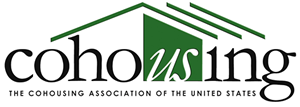Growing Demand for Cohousing Leads Fannie Mae to Update FAQ’s

Media Contact: Alice Alexander, Coho/US Executive Director
alicecohous@gmail.com
919-824-4799
FOR IMMEDIATE RELEASE – Press Release
GROWING DEMAND FOR COHOUSING LEADS FANNIE MAE TO UPDATE FAQ’SGuideline for underwriting purposes establish this increasingly available housing type as no different than condominiums or cooperatives.
DURHAM, NORTH CAROLINA, October 6, 2016 – Fannie Mae, the entity that sets the standards for home mortgages across the country, now recognizes cohousing in their lender guidelines. Led by the Cohousing Association of the US, a national coalition of lenders, mortgage bankers, along with National Condo Advisers, National Cooperative Bank, and a number of industry professionals, sought clarification to avoid confusion among lenders. The coalition requested that cohousing communities be evaluated as any other condominium, cooperative, multifamily or single family development would be, depending on the community’s relevant financial and legal structure. Fannie Mae in addressing cohousing in their Project Standards Requirements FAQ has confirmed that cohousing homes are eligible for Fannie Mae financing.
Cohousing communities are intentional, collaborative neighborhoods that combine extensive common facilities with private homes to create strong and successful housing developments. Most of these communities are organized as townhouse or condominium developments with a homeowners association; a few are organized as cooperatives. Cohousing is a descriptive term that shows the intent of these developments to cultivate a strong sense of community through extensive common facilities and active collaboration of the residents.
Cohousing communities are part of the new cooperative economy and are predicted to expand rapidly in the next few decades as individuals and families seek to live more sustainably, and in community with neighbors. Since the first cohousing community was completed in the U.S. 25 years ago, more than 163 communities have been established, with a hundred and thirty in process. Most cohousing communities are intergenerational with both children and elders; in recent years, senior cohousing communities focused on older adult needs have grown. Small and large, urban and rural, newly built and retrofits, these communities have consistently been at the forefront of environmental and socially sustainable neighborhoods.
Many of the existing cohousing communities have Fannie Mae and FHA loans, and since 2009, an increasing number have actively sought and received Fannie Mae and FHA Project Approval.
Nevertheless, buyers of cohousing homes often have difficulty getting home loans because in today’s conservative mortgage market, underwriters are concerned about the term “cohousing,” even when these homes meet all the requirements for Fannie Mae loans.
The more than two decades that cohousing communities have existed in the U.S. have shown that these communities are strong financially, with very few foreclosures even in the most troubled markets during the recession. The strong sense of community and mutual support they create actually reduces financial risk, making these communities even better investments. People who buy in cohousing communities are committed to maintaining a strong community, and often have the support of their neighbors during difficult times. A study written by a commercial appraiser in 2010 indicates that cohousing homes performed better than comparable housing in the same neighborhoods during the recession.
Resources:Fannie Mae Project Standards Requirements FAQs (scroll down to Question #22)Fannie Mae
Single Family Business Portal Project StandardsState of Cohousing in the U.S.
Excerpt from Fannie Mae Project Standards Requirements FAQ’sQ22. What are cohousing communities and are cohousing units eligible for Fannie Mae financing?
Cohousing communities are typically characterized by private unit ownership within a community that has explicit arrangements for shared community life and the responsibility for and ownership of common elements and amenities. While these types of communities are often marketed to consumers as cohousing communities, they are typically legally organized as a condominium, cooperative, or PUD project. Other legal structures may also exist for cohousing communities which may not meet Fannie Mae eligibility requirements such as common interest apartments. Mortgages secured by units in cohousing communities may be eligible for delivery to Fannie Mae provided the cohousing project and the subject property unit meet all Selling Guide provisions including any applicable policies related to project standards, deed restrictions, and insurance. Lenders may contact the Project Standards Team with questions about project eligibility for cohousing communities.
Attached is a PDF of this press release.
The Cohousing Association of the United States advances cohousing by assisting communities through a robust network of resources and access to technical assistance; and educating the public about the benefits of cohousing, from resource conservation and sustainability to resilient communities and healthy families. www.www.cohousing.org
Category: History
Tags: Coho/US, Finance, mortgage
Views: 890

